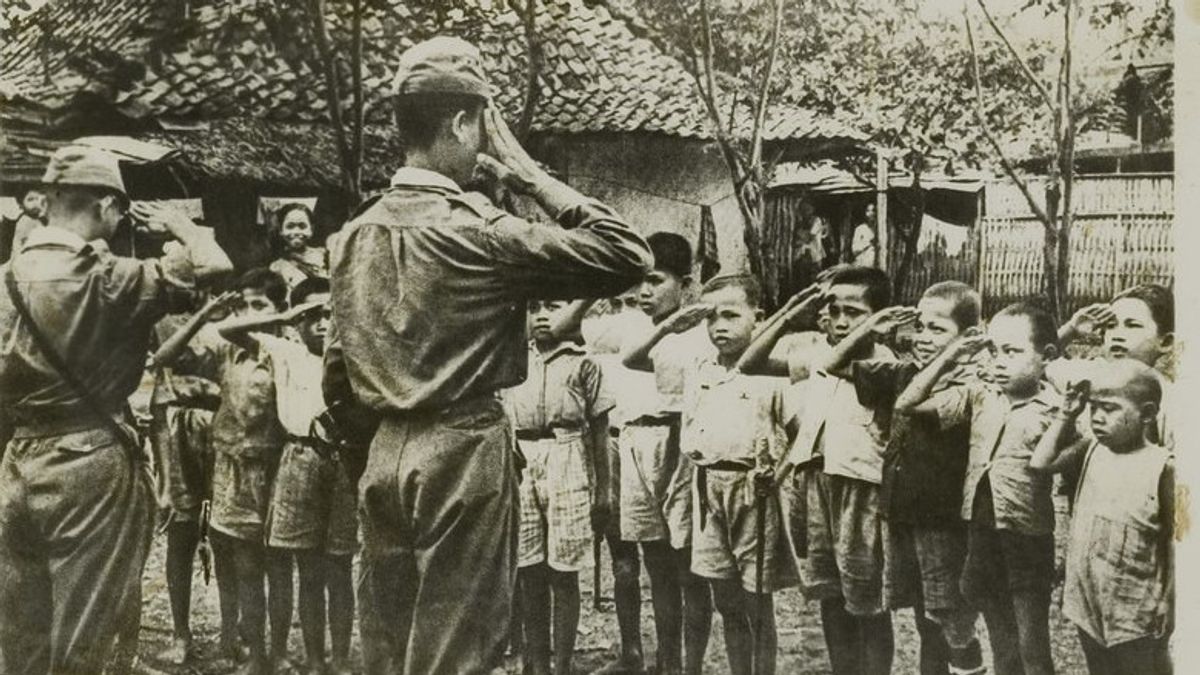JAKARTA - History today, 78 years ago, June 8, 1945, the Asian King newspaper reported that Japan did not want to interfere in Indonesia's independence affairs. The narrative was revealed directly by the Minister of East Asia of Japan, Shigematsu.
Previously, the Japanese colonialists often promised independence for Indonesia. The move did not go smoothly. Japan has broken many promises. Moreover, all natives reject independence in the form of gifts. Indonesia is actually able to be independent beyond the Japanese scenario.
The presence of Japanese colonialists in the archipelago is full of dynamics. On the one hand, Japan is not much different from the Dutch colonialists in terms of suffering the natives. On the other hand, Japan brought fresh air to Indonesia's dream of independence.
Japanese colonizers began to embrace all national figures as supporters in the Pacific War. Instead, Japan promised independence for Indonesia. The promise to give independence was made directly by Prime Minister Koiso on September 7, 1944.
Even though he did not say the certainty of the independence date. At first, many freedom fighters supported Japan's plan. Moreover, Japan came to the archipelago and often raised the status of the natives.
The study made the support of all natives to Japan high. Mainly, because Indonesia was allowed to establish a Business Investigation Agency for the preparation of Indonesian Independence (BPUPKI), it was later known as the Preparatory Committee for Indonesian Independence (PPKI).
However, Japan's promise cannot be fully held by freedom fighters. The nature of the invaders who often broke their promises became a cause. This condition makes Indonesian freedom fighters divided into two. Those who support Japan and those who fight with anti-Japanese.
On September 7, 1944, Prime Minister Koiso promised independence for To-Indo (a Japanese term for 'East INDIA' which continues to be officially used until April 1945). However, he did not specify the date of independence."
"And it is clear that the Indonesian people will return this promise by supporting Japan as a sign of gratitude. The 16th Army in Java is now told to encourage nationalist forces, and the Indonesian flag can be flown at the offices of Javanese Hokokai," said MC Ricklefs in the book History of Indonesia Modern 1200-2004 (2005).
The suspicion of the bumiputras that Japan does not fully support Indonesia's independence is proven. All of this is evidenced by the narrative revealed by the Minister of East Asia, Shigematsu in the Asian King newspaper on June 9, 1945.
He openly stated that Japan did not want to interfere in the affairs of Indonesian independence. Shigematsu's remarks prove that Japan has never been serious about giving Indonesia independence.
Everything changed at a time when Japan was pressed. The country of the Rising Sun then promised again to give Indonesia independence on August 24, 1945. However, all freedom fighters did not want to wait for Japan's promise. The Bumiputras then perpetuated the proclamation of independence in their own way on August 17, 1945. Independence is outside the Japanese scenario.
The Asian Raja coast published on June 9, 1945 contains a statement by the minister of East Asia, Shigematsu, that Nippon (Japan) will not interfere in the formation of a new state of Merdeka Indonesia. This statement proves that Indonesia's independence in the future will not be made by Japan, "explained Osa Kurniawan Ilham in the book Pejambon 1945: The Great Consensus of the Organizing National Foundation (2020).
The English, Chinese, Japanese, Arabic, and French versions are automatically generated by the AI. So there may still be inaccuracies in translating, please always see Indonesian as our main language. (system supported by DigitalSiber.id)









